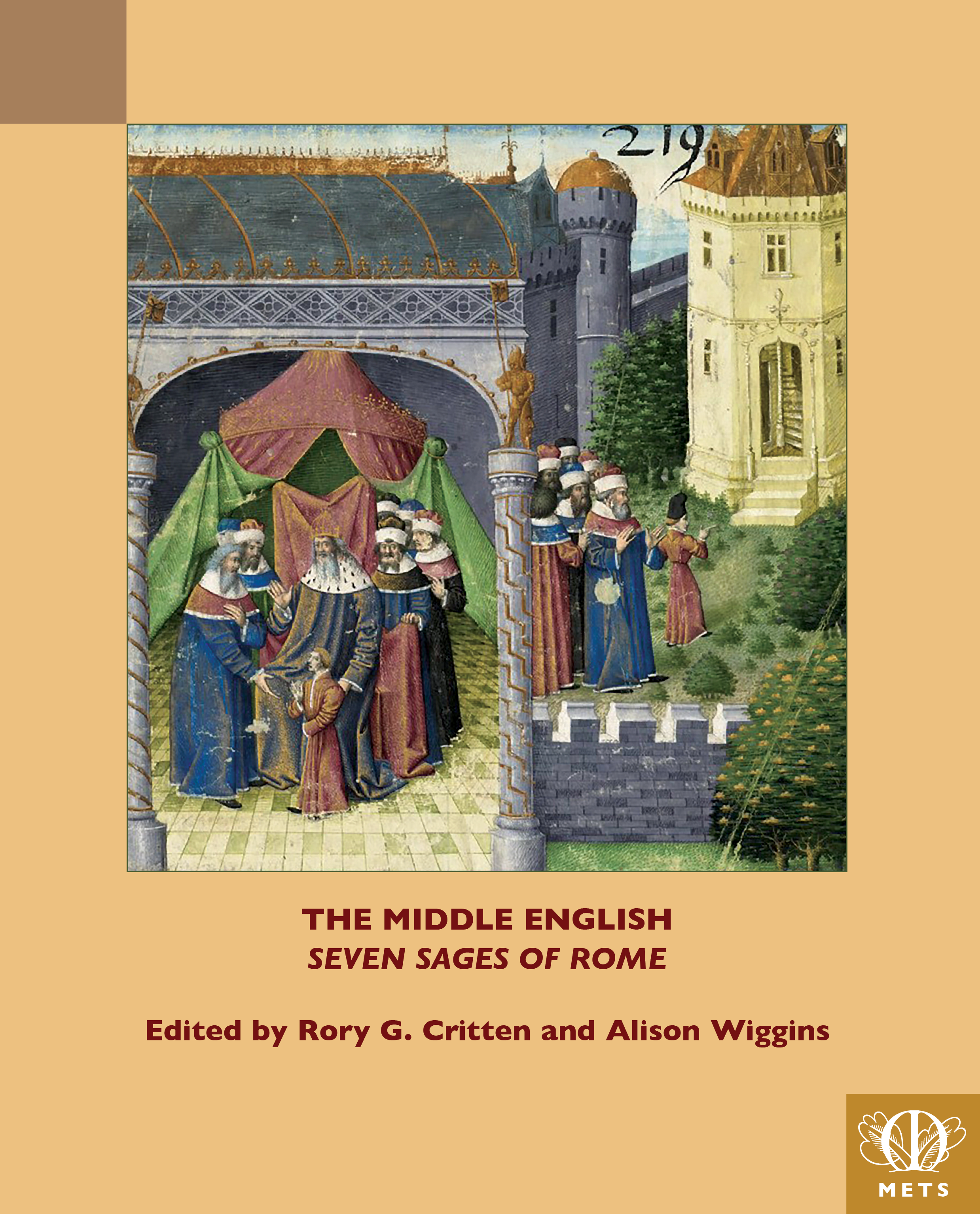Future Publications
A sample of upcoming publications

The Middle English Seven Sages of Rome
Edited by Rory G. Critten and Alison Wiggins
The Middle English Seven Sages of Rome was translated from French ca.1300 by an anonymous writer whom scholarship locates in London. The text relates a tale-telling competition between parties arguing for and against the execution of Florentine, the emperor of Rome’s son. The emperor’s second wife wants Florentine dead because he threatens her position at court; she tells tales of usurping sons and untrustworthy counsellors. In response, the sages tell tales of perfidious wives and the dangers of haste. The emperor vacillates until his son speaks in his own favor and the contest is decided. The frame narrative of the Seven Sages originates in eighth-century Persia; during the Middle Ages it was translated into all the vernaculars and Latin. This edition makes the Middle English poem newly available to students and researchers interested in topics including medieval misogyny, east-to-west cultural transfer, and the history of the exemplum and exemplary writing.
Sign up for our Newsletter
We will be sending out a newsletter 3 to 4 times per year with information about new publications, any upcoming conference appearances, new developments on our website, and more.